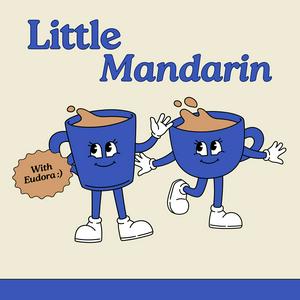【Special】Twist Your Tongue! 🌀 Mandarin Fun with Chinese Po-Song S01E33【CHN】舌头打结啦!一起跟着《中国话》来练绕口令!
Ready to challenge your Mandarin muscles? In this special episode, we warm up with tongue twisters from S.H.E’s iconic pop song《中国话》—a fast, fun, and fierce test of your pronunciation skills! We break down three classic Chinese tongue twisters featured in the lyrics, explain their meanings, and help you practice them step-by-step.Whether you're learning for fun or aiming for fluency, this episode is your playful workout for better tones, rhythm, and confidence. 🌀🎶🔥 Warm-Up:扁担宽,板凳长扁担宽,板凳长,扁担想绑在板凳上。Biǎn dàn kuān, bǎn dèng cháng, biǎn dàn xiǎng bǎng zài bǎn dèng shàng.板凳不让扁担绑在板凳上。Bǎn dèng bú ràng biǎn dàn bǎng zài bǎn dèng shàng.扁担偏要绑在板凳上,Biǎn dàn piān yào bǎng zài bǎn dèng shàng,板凳偏偏不让扁担绑在那板凳上。Bǎn dèng piān piān bú ràng biǎn dàn bǎng zài nà bǎn dèng shàng.到底扁担宽还是板凳长?Dào dǐ biǎn dàn kuān hái shì bǎn dèng cháng?💡 Translation:The shoulder pole is wide, the bench is long. The pole wants to tie itself to the bench.But the bench won’t let it.The pole insists.The bench refuses.So—who’s longer, the pole or the bench?🎙 Try saying it slowly with me. Then try again a bit faster.🧠 Tip: This one really helps you practice b vs. p, and your nasal endings!🌊 Level Up: 哥哥弟弟坡前坐哥哥弟弟坡前坐,坡上卧着一只鹅。Gēge dìdi pō qián zuò, pō shàng wò zhe yì zhī é.坡下流着一条河,哥哥说宽宽的河。Pō xià liú zhe yì tiáo hé, gēge shuō kuān kuān de hé.弟弟说白白的鹅,鹅要过河,河要渡鹅。Dìdi shuō bái bái de é, é yào guò hé, hé yào dù é.不知是那鹅过河,还是河渡鹅。Bù zhī shì nà é guò hé, hái shì hé dù é.💡 Translation:Big brother and little brother are sitting by a slope.There’s a goose lying on the hill, and a river flowing down below.The brother says: “Such a wide river.”The little one says: “Such a white goose.”The goose wants to cross the river. The river wants to carry the goose.But no one knows—was it the goose who crossed the river, or the river who carried the goose?🎧 Try reading it like you're telling a fast story.🧨 Hard Mode:有个小孩叫小杜有个小孩叫小杜,上街打醋又买布。Yǒu ge xiǎohái jiào Xiǎo Dù, shàng jiē dǎ cù yòu mǎi bù.买了布,打了醋,回头看见鹰抓兔。Mǎi le bù, dǎ le cù, huítóu kàn jiàn yīng zhuā tù.放下布,搁下醋,上前去追鹰和兔。Fàng xià bù, gē xià cù, shàng qián qù zhuī yīng hé tù.飞了鹰,跑了兔,洒了醋,湿了布。Fēi le yīng, pǎo le tù, sǎ le cù, shī le bù.💡 Translation:A little kid named Xiao Du went to the market to buy vinegar and cloth.He bought the cloth and vinegar, and then saw an eagle grabbing a rabbit.He put down the cloth and vinegar, and chased the eagle and the rabbit.But the eagle flew away, the rabbit ran away, the vinegar spilled, and the cloth got soaked.🤯 This one is wild. You’ve got verbs, action, rhymes—and all at a crazy speed.🎤 If you can say this three times in a row, you’re officially a Mandarin tongue master.

